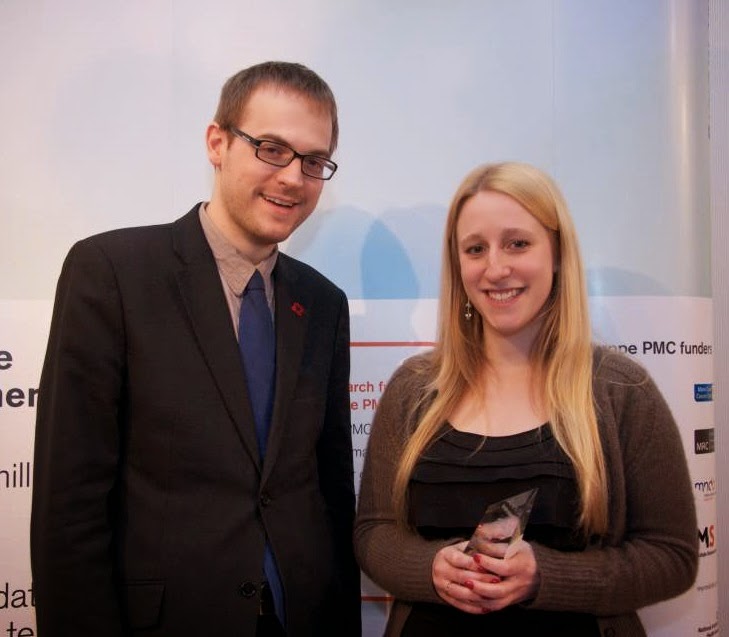experience at Access to Understanding 2013, I was very keen to be involved
again this year. My first entry had inspired me to think about pursuing science
writing as a potential career path, and since such a job would require me to write
about a wide range of subjects, I was keen to test my ability to write about a
topic of which I had no prior experience – namely cancer. This allowed me to
learn something about a field entirely different from my own area of research
(cardiovascular science), and I really enjoyed the challenge of trying to
understand a new subject well enough to be able to explain it clearly to other
non-experts.
firstly, because I saw it had come from the Institute of Cancer Research in
London. As a naïve and slightly misguided undergraduate, I had actually applied
for a PhD at the ICR in 2010 (despite having taken no modules in cancer
biology), because I was sure it would be an interesting disease to investigate.
My ignorance on the subject became embarrassingly apparent at my interview
session, and I was not offered the post (a rejection for which I have always
been grateful, as I have since discovered that cardiovascular science is my
true passion). I had been deeply impressed by this very serious and prestigious
institution, however, so I was curious to see what kind of research they were
pursuing.
I was drawn to this paper was that I could immediately appreciate its clinical significance.
As someone who struggled to choose between medicine and science careers, I have
always been inspired by research with a strong disease focus, and the relevance
of this study to human pathology was very evident. I know from my own field
that a considerable proportion of studies carried out in animals later turn out
to have limited application in humans, so I was excited to see that the
scientists’ findings in lab mice were recapitulated in human samples.
followed the cancer literature, I had to spend some time reading around the
subject, in order to understand how this research built on current concepts of
cancer therapy; particularly how it might help to overcome the disadvantages of
using indiscriminate VEGF-blocking drugs. The substantial achievement of these
scientists was impressed upon me, the more I read, and I was left feeling
hopeful that these studies could truly lead to meaningful advances for cancer
sufferers. I was also encouraged to find that I was able to obtain a basic
understanding of a field previously unfamiliar to me, and an appreciation of
the significance of a piece of research, without excessive time commitments.
The publication of lay abstracts and clinical impact assessments with each new
research paper, however, would undoubtedly facilitate faster dissemination of
new findings to a wider audience (and help scientists keep abreast of progress
in areas outside their expertise!).
again this year, and really enjoyed the awards ceremony, which was very well
run, with enormously interesting guest speakers. I was fortunate to be able to
meet one of the authors of my chosen research paper; we had a fascinating
conversation, in which he updated me on the progress of his research. I
was especially pleased to have been selected once I read the contributions of
the other short-listed candidates; the standard of writing this year was
exceptionally high, with some truly brilliant phraseology. The winning entry,
in particular, stood out immediately, and as a lay reader in the field of
neuroscience, I found it immensely gratifying to read such a fluid and lucid
description of a physiological process I had previously never had occasion to
question.
I will definitely continue to participate in Access to
Understanding, not only because I find it personally rewarding, but also
because I think the remit of the competition – to increase public awareness of
science, by encouraging scientists to share their work – is enormously
important for the future of scientific research and medical advancement. In
this endeavour, I believe Europe PMC has already been successful: the fact that
there were thousands of votes for the People’s Choice Award suggests that there
is an appetite for information amongst the public, and that people are curious
about these studies that for centuries have been carried out behind the closed
doors of limited access and impenetrable jargon. Public engagement ventures are
opening those doors, and can only serve to improve the quality of our research
efforts, by making scientists more accountable, and by inspiring people to
become involved in or donate funds to worthwhile and potentially life-changing
research.





